Content:
How to treat snot and cough in a calf? This problem is very common among young cattle (cattle). The most common cause of the development of a pathological condition is bronchopneumonia. This disease is not contagious, but it is very common. Untimely or incompetent treatment leads to the development of dysfunction of many organs and systems of a young organism, as a result irreversible processes develop. What to do when a cow coughs, preventive measures is the topic of today's article.
Causes of a cough in a cow
As with other conditions where a cow has a cough, the cause and treatment are highly correlated. Therefore, a farmer who sees a problem should definitely know what are the main and secondary causes. It is this knowledge that will allow you to quickly deal with the problem of cough in cattle.
Bronchopneumonia is the most common disease affecting young cattle. It is an acute or chronic pathology, which is accompanied by damage to the alveoli of the lungs, as well as small and medium bronchi.
It is clinically manifested by difficulty breathing, painful coughing / coughing, as well as weakening of the body, saliva and snot flow. Pathology is especially dangerous on farms where the conditions for keeping animals are violated, in this case the problem is, as a rule, widespread.
The development of the disease is based on external factors that suppress the immune system of young animals.
Why does a calf cough? What caused the cow's problems? The main reasons for the development of pathology are:
- lack of insolation and exercise;
- barns that do not comply with the rules (high humidity in the room activates the pathogen);
- drafts in the room where animals are kept;
- unheated barn;
- the combination of dry air and high temperatures also has a detrimental effect on animals;
- strong gas content in the room;
- violation of feeding rules, unbalanced diet;
- disturbed drinking of colostrum;
- course of other pathologies.
Symptoms of pneumonia in calves and cows
According to the degree of development of the disease, it is divided into three degrees of severity.
Acute form
The development of this degree of the disease is observed during the first 5-10 days.
It is accompanied by a change in the animal's mood, its alienation, partial or complete lack of appetite. A change in breathing is often observed - the animal breathes through the mouth, serous exudate flows from the nose, which in the process of development becomes purulent.
A cough begins to appear, initially dry and harsh, and then softer and moist.
A farmer who notices such symptoms is immediately alarmed, begins to think about how to treat a cough in a calf. The main thing is to immediately react, and not let everything go by itself.
Subacute form
It lasts for 20-30 days, accompanied by a loss of appetite and a lag in growth.The condition is accompanied by an increased temperature at all times of the day, with the exception of the morning. The animal may shake because of this.
As for breathing, there is a moist, severe cough and shortness of breath. With an exacerbation of the condition, disturbances in the work of the digestive tract, the development of hypoxia and an increase in shortness of breath are possible.
Chronic form
Perhaps the most severe degree of the disease, therapy in this case can not always help.
During this stage, the animal lags significantly behind in growth, it constantly coughs, a large amount of serous fluid continuously flows out of its nose.
Body temperature, as a rule, is always elevated, but not significantly. In the lungs, wheezing is clearly heard.
Healing calves and cows
The disease can be cured only with complex therapy. How to treat an animal when a calf is coughing? First of all, it is imperative to make adjustments to the conditions of keeping cattle, as well as their nutrition, since these are the factors that are fundamental in the development of this disease.
Twice a day it is necessary to change the litter, remove the manure. The calf should always have unlimited access to clean and, above all, warm water. The diet is normalized for protein and sugar, it should be enriched with vitamins and minerals. Outdoor walks are recommended in fine weather.
Antibacterial treatment
Antibacterial drugs are effective in treating the disease.
Methods for introducing funds:
- Intramuscular injections of potent drugs, for example, Ditrim, Nitox-200.
- Intratracheal. In this case, a mixture of antimicrobial drugs and enzymes is preliminarily prepared. Thanks to this approach, it is possible to dissolve the exudate and improve the interaction of the pathogen with the antibiotic.
- Another effective way of treatment is to give a dose of novocaine blockade with an antibiotic. To carry out the manipulation, it is required to put the animal on its side and fix it in this position. A long needle is inserted in front of the first rib, approximately 5-6 cm below the spine. Thanks to the blockade, it is possible to relieve pain and improve the effect of the drug.
- Aerosol spraying with a solution of antibacterial drugs and suspensions, as well as a number of disinfectants. Effectively suppresses the multiplication of pathogenic microorganisms, promotes better penetration of active substances into the focus of the disease.
Specific and general treatment
During the course of the acute form of the disease, the condition of the animal worsens every minute, and all due to a debilitating cough and a rapid heartbeat. It is very important to take action as soon as possible to suppress the symptoms of the disease.
Local treatment aimed at enhancing the immune response in the focus of bronchopneumonia is of great importance. To do this, veterinarians use paraffin, mustard applications, warming compresses and inhalations.
The effectiveness of inhalation is determined by a large area occupied by the lungs - a high absorption capacity accelerates the action of active components. At the same time, local action enhances blood circulation, lymphocyte inflow and serous fluid separation.
In the form of inhalers used:
- extracts of essential oils;
- baking soda;
- infusions and decoctions of medicinal herbs;
- turpentine;
- proteolytic enzymes.
To keep the cardiovascular system working, it is recommended to administer subcutaneous caffeine.
An effective popular way of fighting is unknown to the general public. Perhaps someone tried to treat calf bronchopneumonia with folk remedies, but did not succeed in this or did not want to share the secret.
Bronchopneumonia of calves: preventive measures
Any pathology is always easier to prevent than to cure.
Prevention measures against bronchopneumonia in calves include:
- Compliance with all housing rules, heated, well-ventilated and clean barns.
- Balanced and high quality nutrition.
- Regular vet checkups.
The premises must necessarily comply with all zoohygienic standards. The permissible air humidity should not exceed 70%, the permissible temperature fluctuations should not exceed 5 degrees.
Also, for prevention, it is required to regularly organize walks in the fresh air for cattle; on hot days, animals should be located under shadow curtains. It is very important to keep the barns clean and hygienic.
It is recommended to use special disinfectants during cleaning. The diet should be comprehensive, enriched with vitamins and minerals. If animals are kept in good conditions, it is possible that they will be diagnosed with bronchopneumonia, but in isolated cases.
Bronchopneumonia of calves is a serious pathology that, in the absence of proper treatment, can lead to death. It is important that the veterinarian regularly examines the animals and diagnoses pathological conditions in a timely manner. Also, to reduce the likelihood of developing diseases, it is necessary to strictly follow all preventive recommendations.
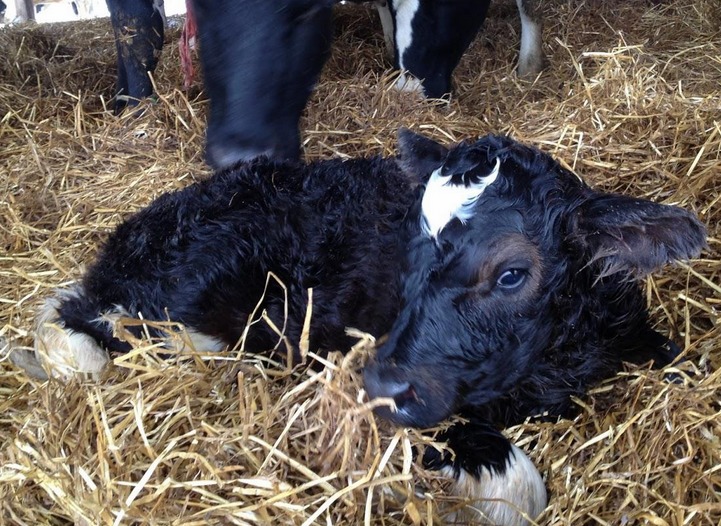

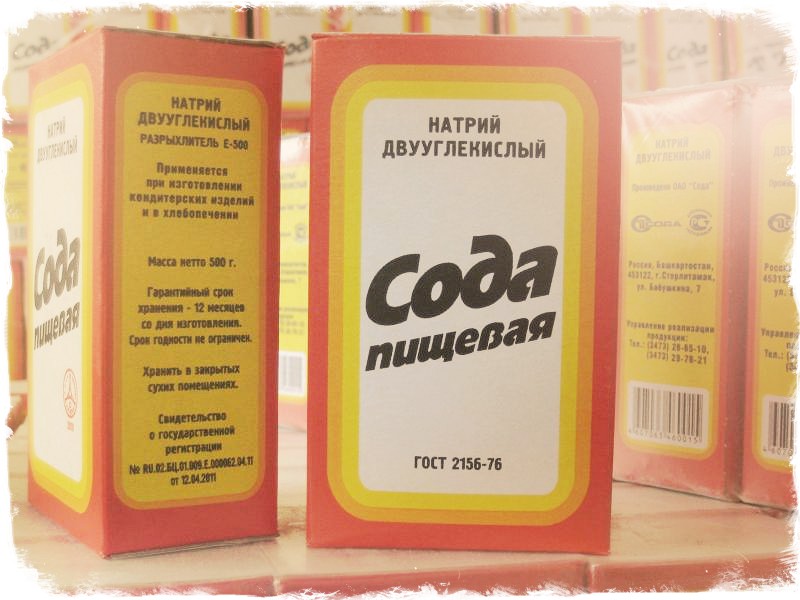
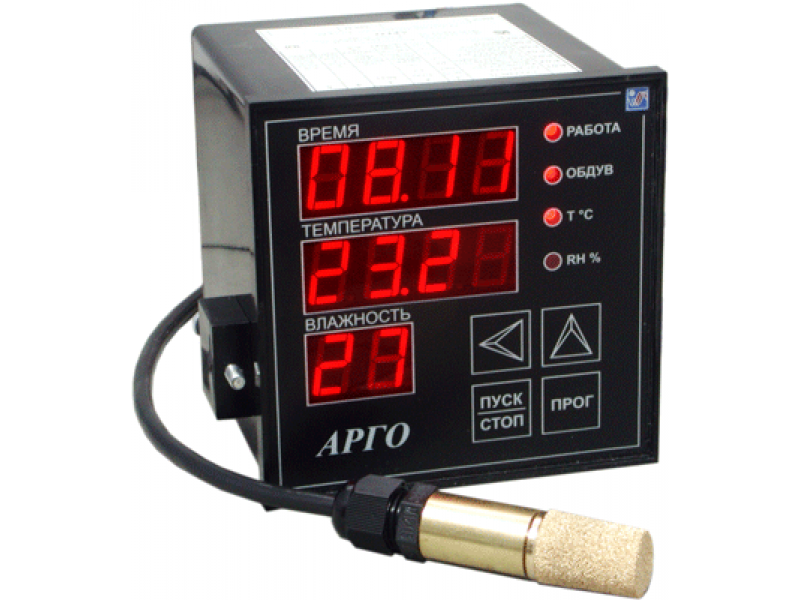
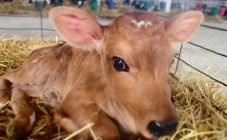
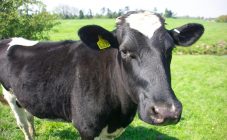
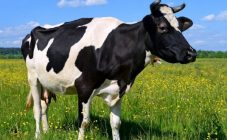
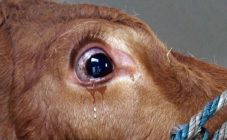
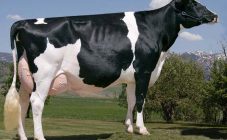
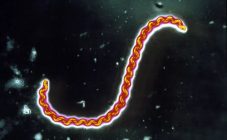







The calf is breathing heavily, Kolya is the third day antibiotics ceftriaxone, there is no improvement, advise what to do, I'm afraid the doctor will not determine whether it is worth treating or will die
Is the calf alive?